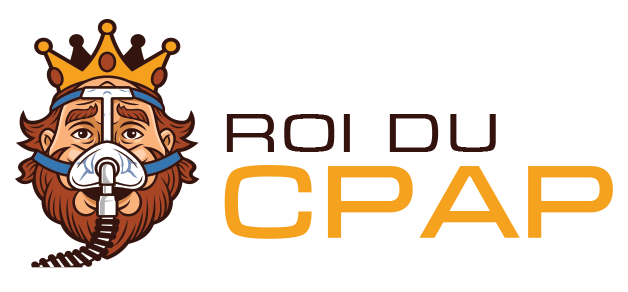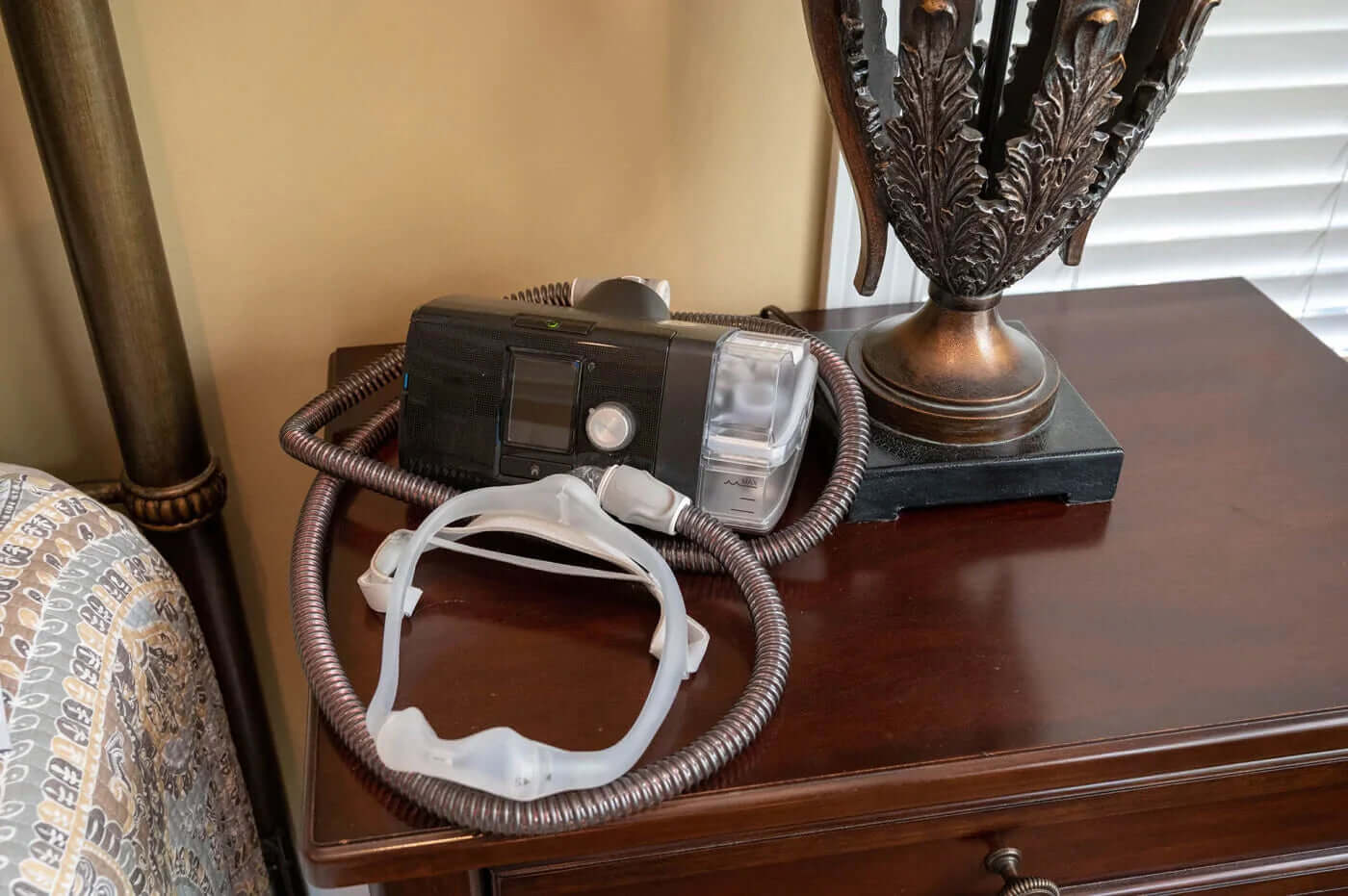Continuous positive airway pressure (CPAP) therapy is a kind of treatment prescribed for people with sleep apnea. It is more frequently prescribed to people with obstructive sleep apnea. This is a condition when there is not enough air being pumped by the respiratory system into the lungs while a person is sleeping. A CPAP machine pumps air into the person's airways to provide relief from breathing problems associated with obstructive sleep apnea.
Sleep apnea is a condition that affects more than 20 million Americans. It is a very common sleeping disorder that could be a symptom of other conditions such as high blood pressure, obesity, stress, kidney problems, or other neurological conditions. Generally, a person suffering from sleep apnea feels short of breath and shallow breathing while sleeping. Let's take a deeper look into the definition of sleep apnea and its symptoms to understand the role of the CPAP machine.
What Is Sleep Apnea?
Sleep apnea is a sleep-related respiratory disorder that develops due to the blockage of air in the upper airway. One of the symptoms of this condition is that sleepers might wake up gasping or choking for air. Snoring is a more common symptom of the condition. You may experience a mental deterioration in your abilities because of the lack of proper sleep. There are three types of sleep apnea.
Obstructive Sleep Apnea
This is the most prevalent form of sleep apnea. One of the characteristics of this condition is that it is marked by recurrent interruptions to sleep. Men are more likely to have obstructive sleep apnea than women. People who have this condition might experience difficulty breathing at night. The upper respiratory tract collapses and prevents normal breathing patterns during sleep. The brain sends a signal to the body to wake up gasping for air. A person with obstructive sleep apnea experiences anywhere from ten to thirty or more interruptions in their sleep every night. Loud snoring and frequent interruptions in sleep are the two main symptoms of the condition. Some other symptoms are:
- Waking up with a dry mouth
- Morning headaches
- Difficulty maintaining focus during the day
- Impatience
- Depression
- Bad temper
This is not a comprehensive list of the symptoms.
Who Is At Risk Of OSA?
- Smokers: Smoking aggravates the normal functioning of the esophagus, throat, and lungs. It also irritates all of the muscles in the throat. This can cause the muscles in the throat to stop working to the point where the respiratory airway gets blocked.
- Alcohol usage: All the muscles in the body loosen up after coming into contact with alcohol. The muscles in the throat relax to an extent of blocking the airway during sleep.
- Natural causes: Certain people are genetically prone to contracting sleep apnea because of the shape of their necks.
- Obesity: Overweight people are more likely to experience episodes of sleep apnea because of the extra weight.
- Old Age: Older people are prone to developing sleep apnea.
Central Sleep Apnea
Central sleep apnea (CSA) occurs when the brain does not manage to send signals to efficiently coordinate the breathing process. Central sleep apnea occurs because of the failure of the central nervous system to send signals to the respiratory system. This condition is more common in people who have conditions that affect the nervous system or the brainstem.
Men are more at risk of developing CSA. It can be a side-effect of being overweight, having cardiovascular problems, or Parkinson's disease. CSA is more common in older people over the age of 65 or someone who has a brain tumor. There is a higher possibility of having CSA for people who have had a stroke.
Complex Sleep Apnea
Complex sleep apnea is a combination of both obstructive sleep apnea and central sleep apnea. People with complex sleep apnea or mixed sleep apnea as it is commonly known also grind their teeth. They also exhibit the symptoms of other forms of sleep apnea.
How Does CPAP Therapy Work?
Continuous positive airway pressure (CPAP) therapy is the main form of treatment for people with sleep apnea. CPAP treatment does not heal the condition of sleep apnea. The CPAP apparatus delivers a continuous airstream through your nose or mouth to prevent the airway from collapsing during sleep. The best setting for the CPAP machine differs from person to person.
Performing a titration test can help to identify the best pressure level for the machine. Avoid fiddling with the equipment without consulting a doctor once the right setting has been identified with the help of a titration test. CPAP therapy is recommended most often for OSA and CSA patients. Doctors report that they face the following problems when they recommend their patients with CPAP therapy:
- Difficulties for patients with asthma or other respiratory diseases and conditions
- Waking up feeling queasy or throwing up
- Waking up feeling bloated or frequently passing gas
- Dizziness
- Difficulties for people who have had a beauty treatment such as a facial
- Face burns while using the device
- Feeling claustrophobic
- Patients reluctant to use CPAP therapy
These are all just some of the symptoms associated with using the CPAP treatment. This therapy is not a cure for sleep apnea. The treatment helps to reduce the symptoms of sleep apnea. A person can benefit from the device only as long as they are using the apparatus.
Not using the equipment can worsen the condition. Without using the instrument you may experience cardiovascular problems such as exhaustion, hypertension, heart attack, heart failure, or stroke. But what happens when you have a cold or when you want to go on vacation?
There are some benefits if you want to temporarily stop using CPAP therapy. The benefits are especially there for people who have been using the device consistently. Sleep apnea is a condition that directly affects the respiratory airways. Similarly, CPAP equipment also has both positive and negative effects.
There is no harm in not using the device for a few days because you have a cold. It’s also ok not to use the device for a few days because you are going on vacation. A user will still feel the positive effects of the treatment by experiencing naturally aspirated sleep for a few days. It is important to consult your doctor if you want to completely stop using the device for good.
CANADA'S WIDE SELECTION OF CPAP MACHINES, CPAP MASKS & CPAP ACCESSORIES
No matter where you are in your sleep apnea journey, the CPAP King has you covered. If you are looking for brand-new equipment and CPAP machines at the lowest price, you're definitely at the right place. We offer you the top-recommended brands for CPAP Machines, CPAP Pillow Masks, Nasal Masks, Full Face Masks, CPAP Supplies, and Sleep Accessories at a fraction of the price. Order now and take advantage of free shipping and no-hassle return policies across Canada. You don't need to break your wallet to get the sleep you deserve!
Do you have questions? Call us toll-free at 866-476-4821 or start chatting now with one of our CPAP experts today.


Share:
If I snore, does it mean that I suffer from sleep apnea?
How To Wear A CPAP Mask The Right Way